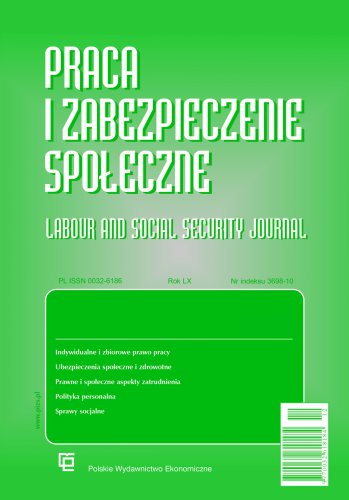Labour and Social Security Journal 04/2021
ISSN: 0032-6186
Pages: 56
Publication date: 2021
Place publication: Warszawa
Binding: paperback
Format: A4
Publication date: 2021
Place publication: Warszawa
Binding: paperback
Format: A4
DOI: 10.33226/0032-6186.2021.4.1
JEL: I140, K31, K32
DOI: 10.33226/0032-6186.2021.4.2
JEL: K31
DOI: 10.33226/0032-6186.2021.4.3
JEL: K31
DOI: 10.33226/0032-6186.2021.4.4
JEL: K31
DOI: 10.33226/0032-6186.2021.4.5
JEL: K31
DOI: 10.33226/0032-6186.2021.4.6
JEL: K31
DOI: 10.33226/0032-6186.2021.4.7
JEL: J32
DOI: 10.33226/0032-6186.2021.4.8
JEL: H55
DOI: 10.33226/0032-6186.2021.4.9
JEL: K31
DOI: 10.33226/0032-6186.2021.4.9
| Odbiór osobisty | 0 € |
| Kurier Inpost | 4 € |
| Kurier FedEX | 4 € |
| Inpost Paczkomaty | 4 € |
| Free delivery in Reader's Club | from 47 € |

